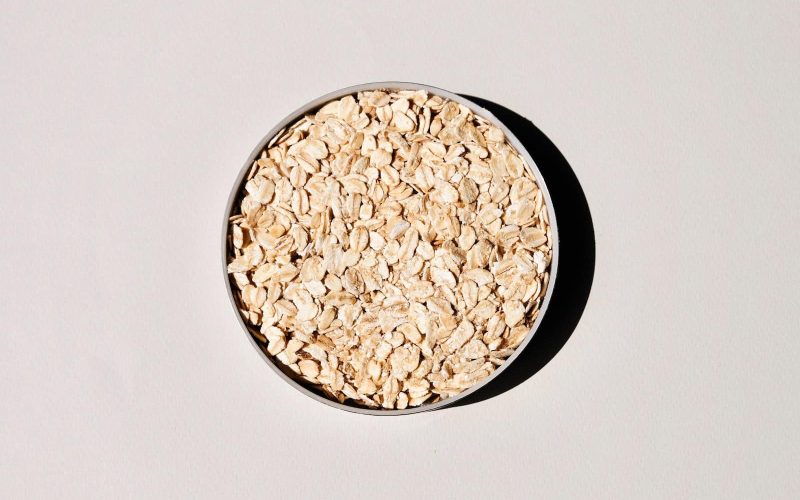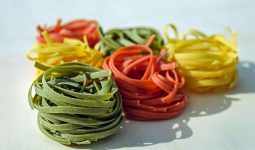Epsom salt is a great way to relax your body and mind. Epsom salt can be harsh on the skin or just hard to stomach.
What are the substitutes for Epsom salt? Epsom salt is made of magnesium sulfate, which helps regulate enzyme activity in plants and animals.
This article will discuss alternative substitutes for Epsom salt that are gentler or easier to digest on the skin.
1. Table Salt and Sea Salt
Table salt and sea salt are commonly used as substitutes for Epsom salt in various recipes or for various treatments.
Both table and sea salts contain magnesium sulfate, the same compound in Epsom salt. However, there are some key differences between the three.
Table salt is highly processed and contains additives such as iodine, while Epsom salt and sea salt do not.
Epsom salt also has a much finer grain than a table and fine-grain sea salt due to its higher sulfur content, making it dissolve more quicker in liquid.
Although both table and sea salts can be used as substitutes for Epsom salt, it’s best to choose only all-natural versions of these salts that contain no additional additives.
When substituting a table or sea salts for Epsom salts, it’s important to do so carefully since there is no exact conversion measure between them.
Generally speaking, it’s best to use slightly less of either type of substitute if using them in place of Epsom salts specifically since they are coarser than their counterpart.
Additionally, since both types of substitute have different impurities (especially when looking at table salt), it’s a good idea to add each carefully rather than all at once until you get the desired amount or taste preference.
With a bit of trial and error, you should be able to find which proportion works best for you, whether making bath bombs with substitutes for Epsom salt or treating sore muscles with these same substitutes instead!
2. Apple Cider Vinegar
Apple Cider Vinegar (ACV) is an increasingly popular substitute for more conventional treatments such as Epsom salt.
This natural remedy has many therapeutic benefits, as it can treat many ailments, including stomach issues, skin problems, arthritis, common colds, and even weight loss.
Additionally, ACV, one of the best substitutes for Epsom salt, is easy to find and cheap to buy, making it an attractive alternative treatment option.
The benefits of using ACV instead of Epsom salt come from the mix of acetic acid and malic acid found in the liquid.
These acids are renowned for their antibacterial and antifungal properties that help fight off infections while increasing overall immunity levels.
In addition, ACV may assist with detoxifying the body due to its high potassium content, which helps flush out toxins.
It is also thought that drinking vinegar helps regulate pH levels in the body, which can help reduce inflammation and pain associated with chronic conditions such as arthritis.
Drinking a glass of warm water mixed with a tablespoon of liquid daily may help improve your health over time.
ACV makes sense as one of the best substitutes for Epsom salt because it’s cheaper and provides multiple health benefits that could prevent you from getting sick or taking unnecessary medications.
3. Oatmeal
One of the substitutes for Epsom salt, oatmeal, is a nutritious food with many potential health benefits.
It is also a great alternative to Epsom salt for various purposes, such as soothing inflamed skin or providing muscle relief.
Oatmeal contains antioxidants and polyunsaturated fatty acids, making it an ideal substance to help reduce inflammation in one’s body.
Additionally, oatmeal can be used as an exfoliant because its grains help remove dirt, excess oils, and dead skin cells from the skin’s surface while providing ample moisture.
Also, oatmeal has anti-inflammatory properties that can reduce redness and irritation on the skin.
In addition to its topical applications, oatmeal can be used for relaxation bath soaks instead of Epsom salts.
Drawn baths with oatmeal promote calm and relaxation and heal dry and damaged skin by drawing out impurities from the body while adding minerals like magnesium back into it.
This is especially beneficial if you have sensitive skin because oats, substitutes for Epsom salt, are not as abrasive on the body as larger grain salts like Epsom Salt.
Also, because oats hold onto water more than salt, soaking in an oat-filled bath often leads to more hydrated and smoother skin post-bath, too!
4. Mustard Powder
For many years, mustard powder has been seen as an effective substitute for Epsom salt in various remedies and treatments.
Mustard powder, also known as dry or ground mustard, is made by grinding down mustard seeds into fine powder. This can then be added to hot water or other liquids to create a poultice or soak.
One of the most popular mustard powders is used as a muscle relaxant in hot baths and soaks. The high amount of magnesium present in mustard powder can help the body relax tense muscles and reduce pain.
The active ingredients have been known to stimulate circulation, improve constipation, alleviate aches and pains caused by arthritis, treat skin infections, and open up breathing passages.
Some sources recommend adding it to warm baths with sea salt to detoxify the body and mind.
The mustard powder may also be beneficial as an expectorant when inhaled or taken orally for colds, congestion, or sore throats.
Overall, there are several reasons why mustard powder is often used as a substitute for Epsom salt for different remedies and treatments.
From soothing tired muscles to helping to clear up colds and respiratory issues, this simple ingredient has multiple benefits that make it well worth considering when looking for natural alternatives to conventional medications.
5. Rock Salt
Of the different substitutes for Epsom salt, rock is an incredibly versatile mineral used for centuries in various ways.
It can be used as a substitute for Epsom salt in many applications, making it an attractive option to many people who do not have easy access to Epsom salt or prefer to use all-natural products.
In particular, rock salt is great for adding trace minerals to bath salts and providing exfoliation in spa treatments.
Using rock salts as substitutes for Epsom salt has several notable benefits compared to its more common counterpart.
Firstly, because rock salt is naturally occurring and requires no further processing, its use often results in fewer environmental impacts than chemically produced Epsom salts which may contain residues from their manufacturing process.
Secondly, since rock salt does not dissolve as easily as Epsom salt, it’s also thought to last longer when added to mixtures or baths – up to twice the amount of time spent soaking in the same bath salts.
Furthermore, rock salt is known for containing other beneficial minerals (such as potassium and magnesium) that may help deflate muscles and restore body balance.
Epsom salts cannot offer this due to their high concentration of one mineral (sulfate).
Finally, using rock salt instead of Epsom Salt can save money since the former is much more abundant than the latter.
6. Essential Oils
Essential oils are natural substitutes for Epsom salt, and many of them offer similar health benefits.
Many essential oils can be used for relaxation, pain relief, and to reduce feelings of stress or anxiety. They can also help with skin conditions such as eczema, psoriasis, and dry skin.
Essential oils are commonly used in spa treatments and massage therapies due to their calming effects.
In addition to providing relaxation benefits similar to Epsom salt, essential oils can also be used in aromatherapy.
The natural healing properties of certain essential oils make them an excellent choice for individuals looking for a gentle but effective way to treat the symptoms associated with chronic pain and other medical conditions.
Essential oil recipes can be easily found online or in books devoted to aromatherapy that provide detailed instructions on safely and effectively using the different oil combinations.
Additionally, unlike Epsom salt, which relies upon mineral ions that need additional time in contact with the body before they become fully effective, the vapors produced by burning essential oils are quickly absorbed by our bodies allowing users to experience immediate effects.
7. Prune Juice
Looking for substitutes for Epsom salt? Prune juice is an effective substitute for Epsom salt for promoting better health.
It has laxative properties that help with digestion and also help to regulate electrolyte balance in the body.
Prune juice can be used as a treatment for constipation, increasing fiber intake, and fighting bloat.
It can also flush out toxins from the body, aiding in the overall detoxification of the liver and kidneys.
Additionally, prune juice can reduce inflammation in the body, which can help reduce pain and swelling associated with certain medical conditions.
Drinking prune juice, one of the various substitutes for Epsom salt, is also a great way to hydrate the body, which helps maintain essential metabolic functions for optimal organ performance.
Prune juice is a great option for athletes or those seeking an alternative to Epsom salts for muscle relaxation.
Not only does it provide electrolytes that are lost during strenuous exercise or physical activity; however, but it can also aid in muscle recovery due to its high magnesium content.
Magnesium plays an important role in cell regulation which helps strengthen muscles after exercise or activity.
The antioxidants in prune juice promote muscle regeneration, helping speed recovery from injury or over-exertion.
Prune juice offers many benefits making it an excellent substitution for those who avoid Epsom salts while still achieving desired results.
8. Baking Soda
Baking soda, also known as sodium bicarbonate, is one of the substitutes for Epsom salt and a versatile ingredient found in many kitchens worldwide.
It can be used for multiple purposes, such as baking, cleaning, and even skincare treatments.
Recently, it has become popular to use baking soda as a replacement for Epsom salt (magnesium sulfate).
Epsom salt can be expensive and hard to find, while baking soda, one of the substitutes for Epsom salt, is more readily available at local grocery stores.
Using baking soda instead of Epsom salt delivers similar benefits, including reducing inflammation due to its anti-inflammatory properties.
It is also effective in relieving pain caused by muscle cramps and spasms, another condition that Epsom salts often treat.
While it may not be as strong as Epsom salt when healing certain conditions like arthritis or helping athletes recover from sports-related injuries, baking soda is still a great substitute for those looking for an effective at-home remedy.
Additionally, unlike typical bath salts containing fragrances and dyes that could potentially irritate sensitive skin, baking soda cannot cause negative side effects if used correctly.
9. Turmeric
Next up on our list of the best substitutes for Epsom salt, turmeric is a popular herbal remedy and natural alternative to Epsom salt.
Due to its anti-inflammatory characteristics, turmeric has been used for years to help reduce pain and swelling caused by digestive issues, arthritis, or muscle aches.
Turmeric is an effective calming herb that helps improve circulation, relax muscles, and relieve stress.
Unlike Epsom salt, it contains no magnesium, which can help flush toxins from your body.
However, it instead includes active compounds like curcumin, which can help reduce inflammation in the joints and increase antioxidant activity in the body.
You can use turmeric as one substitute for Epsom salt in several ways. You can add it directly to warm baths or create your turmeric paste with water, ginger powder, ground black pepper, and other herbs.
Before going into a warm bath, this paste should be applied topically onto affected areas such as sore joints or muscles.
Alternatively, it can be consumed orally with milk or water twice or thrice daily, regardless of whether you’re having a warm massage bath.
Such remedies have become increasingly popular amongst athletes due to their ability to soothe sore joints and reduce fatigue after exercise, improving overall physical performance.
10. Cayenne Pepper
Cayenne pepper is one of the versatile and flavorful substitutes for Epsom salt. Cayenne pepper contains capsaicin which helps to relieve pain, reduce inflammation, relax muscles, and improve circulation.
Additionally, its spicy flavor can help to boost your metabolism, which helps your body to detoxify from harmful toxins more efficiently.
Cayenne pepper also has antibacterial properties, which make it helpful for treating skin infections.
It can be used topically on the affected areas or mixed with coconut oil, water, and honey to make a paste that can be applied as a poultice on the affected area.
It can also be taken internally in capsules or added to drinks like tea or smoothies for an energizing kick.
Moreover, it’s an effective digestive stimulant that promotes proper digestion and helps fight bloating and gas while relieving indigestion-related problems like heartburn and acid reflux.
These are just some health benefits that cayenne pepper, one of the substitutes for Epsom salt, offers when used as an alternative to Epsom salts.
11. Bentonite Clay
Bentonite clay is gaining more popularity as one of the fascinating substitutes for Epsom salt. It is a type of clay made up of fine particles created when volcanic ash ages.
It contains various minerals — magnesium, silica, potassium, and calcium — which makes it beneficial for many uses.
Bentonite clay has been used for centuries in traditional medicine to help heal skin conditions such as psoriasis, eczema, and dermatitis.
The minerals found in bentonite clay also benefit the body when taken orally. This type of clay can be consumed to reduce inflammation, balance the pH levels in your body, and detoxify heavy metals from water.
Unlike Epsom salt, bentonite clay does not contain sulfates or require any added components like baking soda to be effective.
When used externally on the skin, bentonite clay helps cleanse, soothe, and reduce irritation due to its antibacterial properties.
This type of clay, one of the substitutes for Epsom salt, has powerful drawing effects that pull toxins out from beneath the skin’s surface.
It helps clear breakouts by removing dirt and bacteria without over-drying the skin.
When mixed with water or other natural oils, such as coconut oil, it forms a paste that can be applied directly onto affected areas.
After allowing it to sit on the skin for up to 20 minutes (depending on sensitivity), rinse off with warm water and pat dry with a towel.
Bentonite clay provides an all-natural alternative that may be safer than other chemical-based products typically used for these treatments.
12. Coffee Grounds
So are you seeking to know natural substitutes for Epsom salt? Coffee grounds have recently become a natural substitute for Epsom salt in home remedies and spa treatments.
Unlike Epsom salt, coffee grounds are usually free or cheaper than Epsom salt, making them a great alternative.
Coffee grounds are full of antioxidants, which help to stimulate circulation and reduce inflammation, making them ideal for wellness treatments like muscle soaks and facials.
They are among the few ingredients that can be used topically on the skin.
Another benefit to using coffee grounds is that they are more eco-friendly than Epsom salt since they’re made from recycled coffee beans, meaning less waste goes into landfills.
One downside to using coffee grounds instead of Epsom salt is that some people find it difficult to rinse off after an at-home spa treatment due to its coarse texture.
Those who want a gentle exfoliation may prefer the finer texture of Epsom salt. Regardless, both products offer skin-soothing benefits, and with either choice, you should expect to experience relief from fatigue, stress, and muscle pain!
13. Magnesium Flakes
Magnesium flakes are becoming increasingly popular as one of the best substitutes for Epsom salt for therapeutic and cosmetic applications.
Magnesium flakes contain a high concentration of pure magnesium chloride, making them an optimal choice to supplement magnesium levels in the body.
Magnesium flakes are absorbed better than other forms of magnesium, such as tablets and capsules.
This is important when confronting a deficiency or receiving the many other benefits associated with the mineral.
Magnesium chloride also helps to balance out organisms within cells, ultimately helping the circulation of vital nutrients.
In addition, it reduces inflammation within muscles and joints, alleviating pain that can occur from hard physical exertion or exercise.
Externally, magnesium flakes are substitutes for Epsom salt, a powerful hydrator that can leave skin feeling soft and supple.
People who struggle with dry skin are ideal candidates for applying magnesium oils or lotions containing the mineral.
On top of this, they can be used in all types of baths, allowing users to reap all their benefits through a refreshing soak at home.
The mineral encourages cellular renewal while protecting against toxins by thoroughly cleansing pores without causing dryness afterward.
Even those with oily skin can benefit from periodic application since it helps regulate oil production while maintaining hydration balance, enhancing the complexion’s glow and tone over time.
Finally, we will wrap up our list of substitutes for Epsom salt here!
Conclusion
In conclusion, many substitutes for Epsom salt can achieve many of the same benefits.
For example, baking soda, Himalayan sea salt, and magnesium citrate can all help to reduce inflammation due to their natural anti-inflammatory properties.
Additionally, bicarbonate of soda and apple cider vinegar can be used as mild exfoliators and as natural remedies for skin irritations.
As with any product or remedy, it is important to research and consult a healthcare professional before use.
Ultimately, finding the right substitutes for Epsom salt will depend on each individual’s specific needs and conditions.








